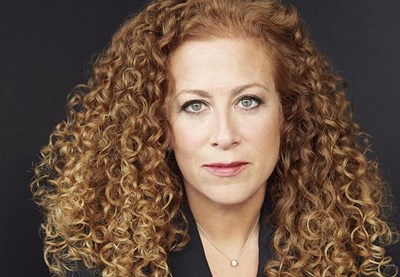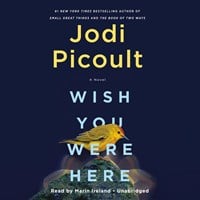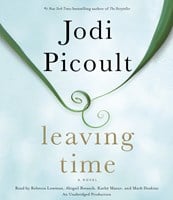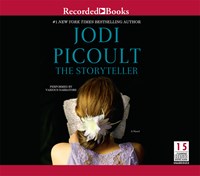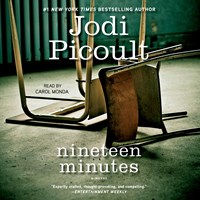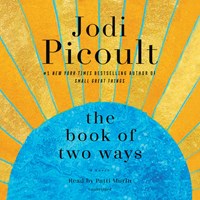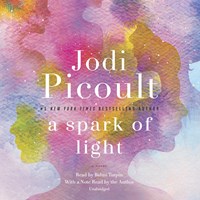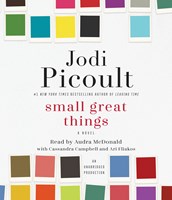Get our Newsletter
-
- Reviews
- Narrators
-
Features
- Audiobook ClubStart a conversation with your book club
- Best Audiobooks2023 Best Audiobooks
- ArticlesDiscover the diverse voices of audiobooks
- NarratorsSpotlight on popular narrators
- AuthorsAuthors talking about their audiobooks
- Upcoming TitlesFind upcoming audiobook release announcements
- Kids and TeensListening selections for kids & teens with age levels
- Audie Awards 2024 Audie Awards
- Subscribe
- About
- Articles
Talking with Jodi Picoult
When bestselling novelist Jodi Picoult is writing, her head is full of shouts and murmurs and the rapid-fire conversation of people interrupting each other. “Sometimes,” she says, “it seems that all I’m doing is writing down what I hear.”
While Picoult credits the volubility of “her voices” for making her job easy, sheer effort should receive its share of recognition for her 15 acclaimed novels. She researches and writes each of them in nine months--”it’s a lot like giving birth”--and spends the other three months of the year on book tour. When asked how she can possibly maintain that schedule, Picoult just laughs an effervescent champagne bubble of a laugh. “It takes a lot of good time management.”
Picoult, who loves to give readings as part of her book tours (thereby outing all her internal voices), lauds the Recorded Books versions of her novels. She’s particularly pleased with the use of multiple actors to portray her books’ multiple narrative voices. “It’s a great device because they help the listener change gears and remember that everyone has a different voice and a different opinion. It works metaphorically, as well as making the audiobook more realistic.”
Recorded Books often sends audio clips of potential narrators for Picoult’s consideration. “After hearing the voices internally as I’m writing, I must have some innate sense of what they should sound like. There have been times that I’ve been able to say whether an actor’s voice matches a character, or whether it’s, say, too deep or too cultured. I’ve got to say, though, that Recorded Books must be doing it right! They won an Audie for MY SISTER’S KEEPER.
Picoult’s newest, CHANGE OF HEART, is a page-turning tale of love and redemption. As do all her books, it blends current issues with character-driven narrative. “When I’m coming up with the idea for a book, it’s something that I’m worried about as a wife, an American, or as a mom,” she says. “Something I can’t stop thinking about. Eventually, it gets to be big enough that I can almost walk around inside it. And then the characters arrive. I can’t explain that part. They just come and take the story away.”
Perhaps because of the complexity of her plots, Picoult says that when she starts writing, she always knows how a book will end. “What surprises me is how I get to the end. I’m never quite sure of that. The characters are like horses. You grab onto their manes, let them run, and hope you don’t fall off!”
CHANGE OF HEART sprang from “the feeling that this country right now could be split apart on the fault line of religion. I wanted to know why religion, which I think was meant to unify people, has become so divisive. And I wanted to ask about the history of belief. Do people believe in things because they’re right or because we’re too afraid to admit that we don’t know the answer? I decided to do it through the lens of capital punishment, an issue whose controversy I think is often faith-based.”
In summing up, Picoult says, “For me writing a book is the exploration of something very difficult that I don’t have the answer to. I may not change my opinion at the end, but I have a much better sense of why my opinion is what it is. And hopefully, that’s what reading one of my books does for readers and listeners.”--Aurelia C. Scott
JUN/JUL 08
© AudioFile 2008, Portland, Maine
Photo by Deborah Feingold
The latest audiobook reviews, right in your inbox.
Get our FREE Newsletter and discover a world of audiobooks.


